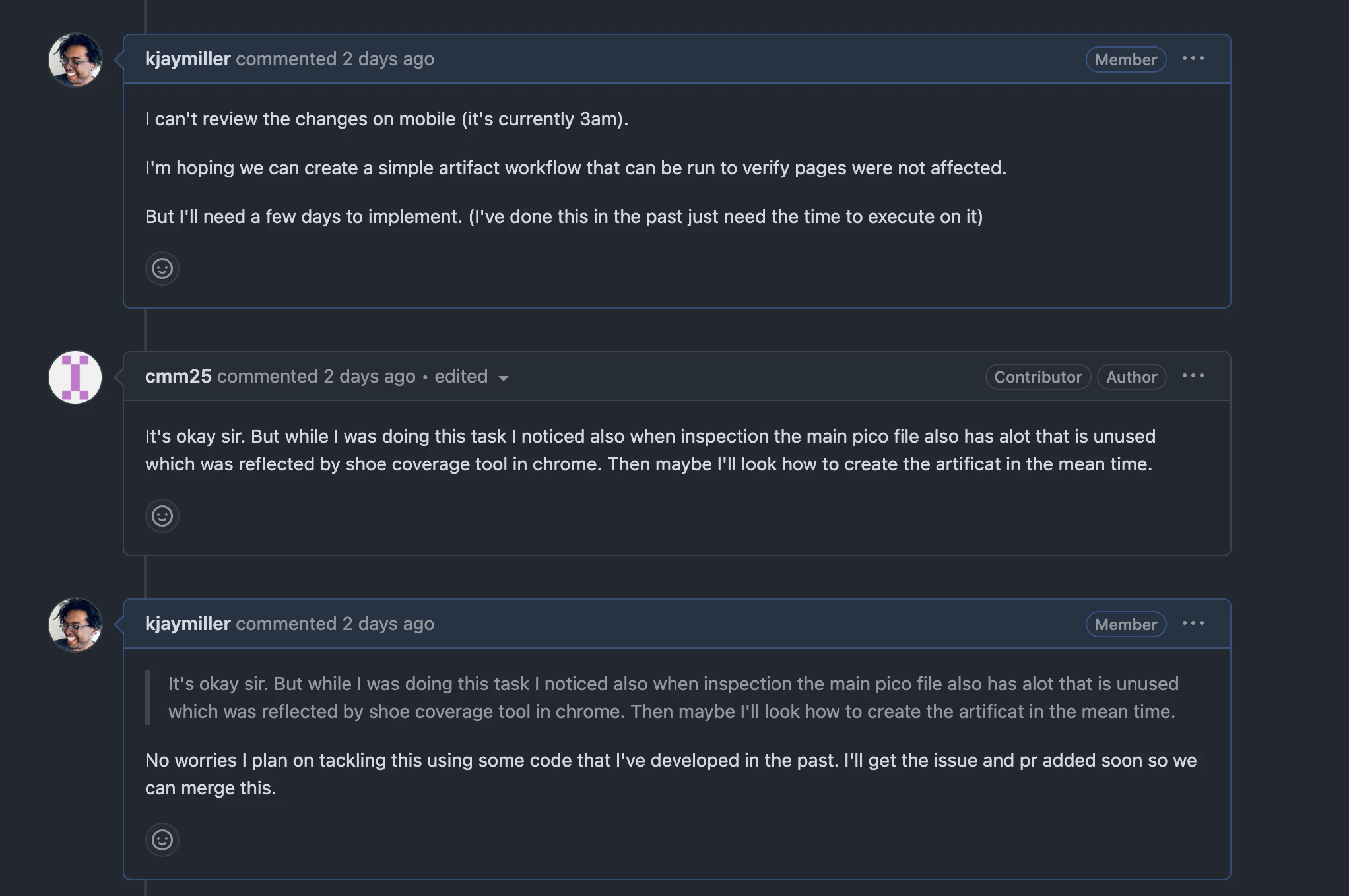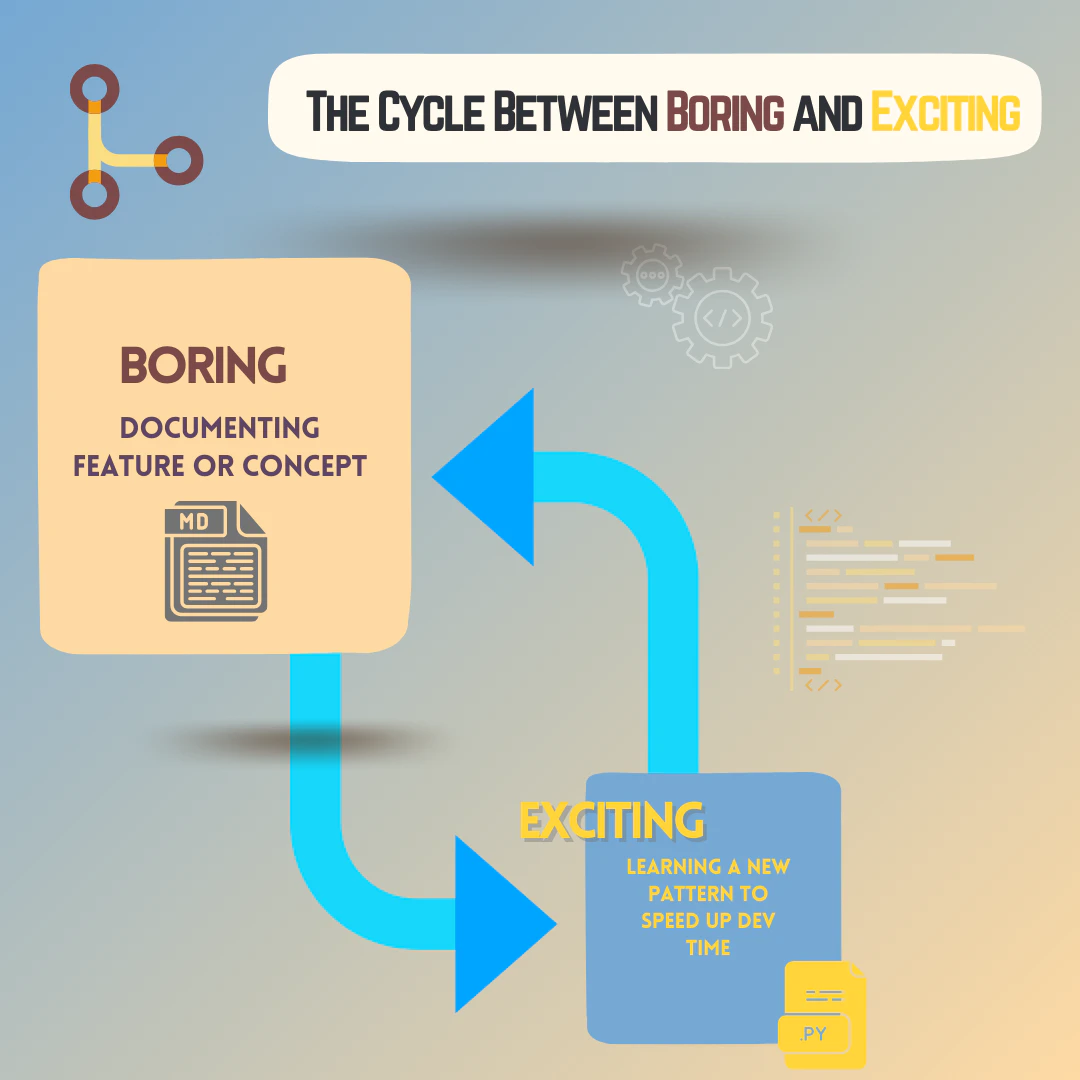What I learned from a "Boring" Contribution
Someone in the BPD Open Source Program mentioned that they were "tired" of doing things like documentation and test updates.
I'm petty and still kinda upset with this mentality but my adventures the last few days really helped me rationalize my frustration and bring out some really important learnings.
Boring is good
Your project should be boring most of the time. Professional code is often boring code. I've also learned that code tends to get more boring the more stable if gets. In fact, the most exciting bit of open-source is often discovered when doing the boring bits.
Finding excitement in boring work
Those bits are the things that no one wants to do.
- documentation
- automation
- triage
- testing
- logging
The excitement doesn't really come with just doing the thing (unless you enjoy doing these things and some folks do!). You benefit from gaining familiarity with the project and learning patterns you can use in other projects.
An example of discovery from boring
Here are is an example I've stumbled into.
I recieved a PR that thins out the CSS of our deployment of picocss. I mentioned to the author of the PR that I wanted to generate screenshots of the site so I could verify that the change would not have any visual issues.

This was something that I had been playing with on my personal website since I had learned about using device emulation with Playwright for my talk at RenderATL.
Before I could add this feature, I needed to fix my local environment. I setup rbenv and finally got jekyll running on my local machine. This let me start development on the feature.
This is where I ran into friction. In order to run the playwright tests, I needed to run jekyll and then run the tests.
I remembered I could use multiprocessor to spawn a daemon process and then run the tests and shut down the process. I recently updated Render Engine to test using ephemeral_port_reserve. This grabs a free port and use so if your webserver is already running you don't get port already in use errors.
I learned how to do this when I was at Microsoft when Pamela and I were building cookiecutter templates that generate other cookiecutter templates and working to get near 100% test-coverage (not important but highlighting it was more boring work).
Sadly, back on the website repo, things weren't working. While troubleshooting, I learned about the module pytest-xprocess which, after reading the docs, I learned how xprocess doesn't use the same source as the project and instead uses a cache directory where the logs and other information are stored.
Then while getting things to work I noticed that there was a lot of duplicate code happening. That's when I decided to quickly refactor things to look similar to what I was doing with my new tests.
Then came the time to submit this PR. That's when I realized a big mistake I had made.
Mo' Code, Mo' Problems
My PR did the following things.
- Introduced a new module to run jekyll inside of tests
- Refactored Routes to parametrize tests
- Introduced the
designmarker and a playwright test that generates images and uses gh-actionsactions/upload-artifactto make them available.
This was a problem because, ideally, PRs should be small and solve documented problems. My code was massive and solved issues that were not highlighted before.
To fix this, I needed to split my changes into multiple PRs. Sadly I already had commits and no easy way to split them.
Here is how I solved this problem:
- create issues for the other things that need to be accomplished
- create a new branch
- reset the branch to the commit before making the code that was changed staged
- refactor the code AGAIN by adding a conftest and splitting the tests into separate files
- use
git add -pto add the changes for the first PR. - commit the added code and submit the initial pr
Doing this came with learning a lot of commands. Here are a few.
git reset <commit hash>git add -pgit restore --staged <files>git add -p <files>git restore --staged <files> -pgit diff --cached
This wasn't easy and I've definitely asked others to do this thing, not realizing what went into doing it. Now I have hte ability to send this to folks to help them with this process.
There's so much to learn with boring PRs
Yes this is a mindset post. But I seriously mean it when I say doing boring things the boring way is boring. But when you are eager to learn implement things that you can take with you on your professional career, then you will have an exciting time contributing to open-source.
Writing tests resulted in learning:
- how to setup rbenv and fix my local environment
- parametrizing device profiles
- about the xprocess module and how I can use it to run processes in the background
- how to split a PR into multiple PRs using commands in git that I've never used before
It also resulted in creating a conference talk IN WHICH I WAS PAID TO GIVE as well as this post. More importantly, I was able to learn things that I can take to other projects.
There is this cycle that comes from doing things a lot and there are a lot of boring things.

I'm not saying every open-source contribution needs to be a learning opportunity but let's not assume that the smallest of PRs don't have HUGE opportunities to learn.